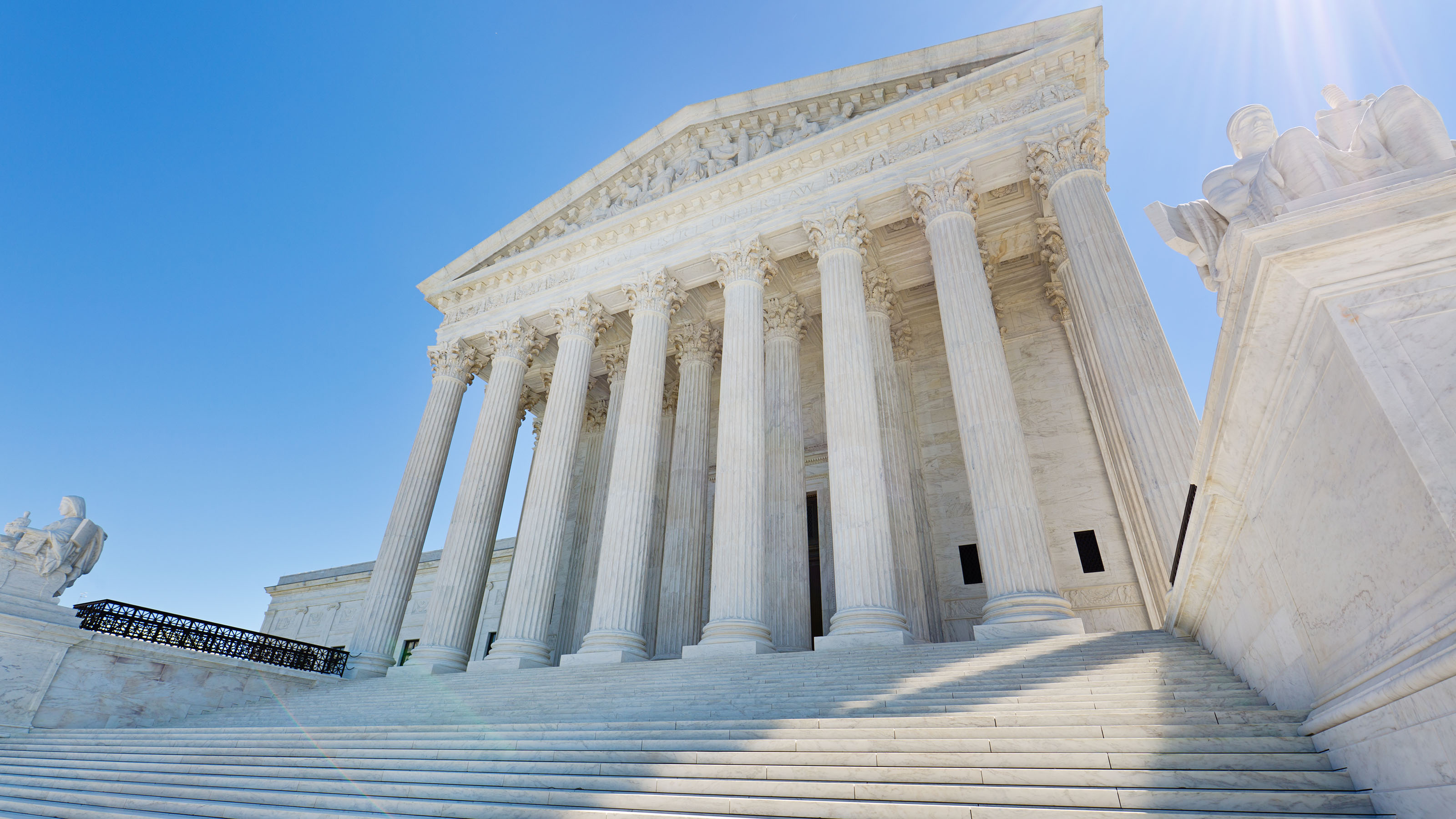Canada and the Health Care Debate
A week on holiday in Canada turned me into a target of sorts, constantly trying to dodge sharply pointed questions about the U.S. health care debate.

Profit and prosper with the best of Kiplinger's advice on investing, taxes, retirement, personal finance and much more. Delivered daily. Enter your email in the box and click Sign Me Up.
You are now subscribed
Your newsletter sign-up was successful
Want to add more newsletters?

Delivered daily
Kiplinger Today
Profit and prosper with the best of Kiplinger's advice on investing, taxes, retirement, personal finance and much more delivered daily. Smart money moves start here.

Sent five days a week
Kiplinger A Step Ahead
Get practical help to make better financial decisions in your everyday life, from spending to savings on top deals.

Delivered daily
Kiplinger Closing Bell
Get today's biggest financial and investing headlines delivered to your inbox every day the U.S. stock market is open.

Sent twice a week
Kiplinger Adviser Intel
Financial pros across the country share best practices and fresh tactics to preserve and grow your wealth.

Delivered weekly
Kiplinger Tax Tips
Trim your federal and state tax bills with practical tax-planning and tax-cutting strategies.

Sent twice a week
Kiplinger Retirement Tips
Your twice-a-week guide to planning and enjoying a financially secure and richly rewarding retirement

Sent bimonthly.
Kiplinger Adviser Angle
Insights for advisers, wealth managers and other financial professionals.

Sent twice a week
Kiplinger Investing Weekly
Your twice-a-week roundup of promising stocks, funds, companies and industries you should consider, ones you should avoid, and why.

Sent weekly for six weeks
Kiplinger Invest for Retirement
Your step-by-step six-part series on how to invest for retirement, from devising a successful strategy to exactly which investments to choose.
A week on holiday in Canada turned me into a target of sorts, constantly trying to dodge sharply pointed questions about the U.S. health care debate. Suffice it to say that our neighbors to the North feel like pawns in our political wars, and they don't like it one bit. What's more, I think they have a point.
What has Canadians up in arms is what they see as an all-out effort to attack their national health care system with lies and disinformation. They mostly blame Republicans, but Democrats get heat for not coming to the rescue, and we all get accused of being selfish and narrow minded.
If you've been paying any attention at all, you know that the health plan being pushed by Obama and congressional Democrats has been roundly criticized as an attempt -- front door or back -- at establishing a national health care plan akin to the one in Canada. To show what a terrible idea that is, the opponents claims that Canadians are dying in droves while waiting for simple but life-saving procedures. Horror stories abound, each one worse than the last, and always with the warning that this is what Americans can look forward to if the Democrats get their way.
From just $107.88 $24.99 for Kiplinger Personal Finance
Become a smarter, better informed investor. Subscribe from just $107.88 $24.99, plus get up to 4 Special Issues

Sign up for Kiplinger’s Free Newsletters
Profit and prosper with the best of expert advice on investing, taxes, retirement, personal finance and more - straight to your e-mail.
Profit and prosper with the best of expert advice - straight to your e-mail.
Never mind that Democrats are pushing nothing close to Canada's national single-payer plan, insisting they want to build on the employer-based system that exists and that no one will be forced to switch plans. But some Democrats do want a public option to compete with private plans, and Republicans claim that would be the camel's nose under the tent. That's a hard sell. If Medicare and Medicaid, huge federal programs, weren't the nose under the tent, there's no reason to think a public option will be.
Canadians are furious that Americans feel a need to attack their system to make a point. More important, they think the criticism is unfair. Canadian aren't shy about admitting their system isn't perfect. There are waits, sometimes long ones, in some parts of the country. And there have been a few horror stories.
But they're quick to point out that there are far more horror stories in the U.S, where about 50 million people have no insurance and many more are seriously underinsured and don't know it until it turns out to be too late. Even if these underinsured can still manage to get care, they often face financial ruin.
The difference, Canadians say, is simple. They are willing to put up with a good, albeit not perfect, system for the sake of the general good. They say Americans, on the other hand, back insurance for everyone, at least in principle, but those of us with money and the kind of jobs that come with insurance aren't willing to make sacrifices to help the rest (that's the selfish part).
There's some truth to this and it goes to the heart of the political challenge facing Obama and others who favor universal coverage. Polls do, indeed, show most Americans want to extend coverage, but the polls also show that most of us like the coverage we have and don't want an overhaul to make it less desirable. Satisfying both goals is tough when money is lacking. Something has to give. And the question is whether we will all accept a little more risk in order to help the less fortunate.
Canadians insist they're not trying to tell us what to do. They know that the free enterprise system means the rich are always going to do better than the poor. If that's our choice, so be it. But they'd prefer we keep them out of our internal squabbles.
Profit and prosper with the best of Kiplinger's advice on investing, taxes, retirement, personal finance and much more. Delivered daily. Enter your email in the box and click Sign Me Up.

-
 Betting on Super Bowl 2026? New IRS Tax Changes Could Cost You
Betting on Super Bowl 2026? New IRS Tax Changes Could Cost YouTaxable Income When Super Bowl LX hype fades, some fans may be surprised to learn that sports betting tax rules have shifted.
-
 How Much It Costs to Host a Super Bowl Party in 2026
How Much It Costs to Host a Super Bowl Party in 2026Hosting a Super Bowl party in 2026 could cost you. Here's a breakdown of food, drink and entertainment costs — plus ways to save.
-
 3 Reasons to Use a 5-Year CD As You Approach Retirement
3 Reasons to Use a 5-Year CD As You Approach RetirementA five-year CD can help you reach other milestones as you approach retirement.
-
 Is a New $25,000 Health Care Tax Deduction Coming in 2026?
Is a New $25,000 Health Care Tax Deduction Coming in 2026?Tax Policy A proposal from GOP Sen. Josh Hawley adds to the chatter about health care affordability.
-
 Money for Your Kids? Three Ways Trump's ‘Big Beautiful Bill’ Impacts Your Child's Finances
Money for Your Kids? Three Ways Trump's ‘Big Beautiful Bill’ Impacts Your Child's FinancesTax Tips The Trump tax bill could help your child with future education and homebuying costs. Here’s how.
-
 Key 2025 Tax Changes for Parents in Trump's Megabill
Key 2025 Tax Changes for Parents in Trump's MegabillTax Changes Are you a parent? The so-called ‘One Big Beautiful Bill’ (OBBB) impacts several key tax incentives that can affect your family this year and beyond.
-
 Will EVs Drive the Vote in Election 2024 Swing States?
Will EVs Drive the Vote in Election 2024 Swing States?Tax Credits Electric vehicle tax credits have somehow become controversial. So car buyer attitudes in swing states might make a difference.
-
 How Four Recent Supreme Court Rulings Impact Your Money
How Four Recent Supreme Court Rulings Impact Your MoneySupreme Court Some U.S. Supreme Court decisions could affect your finances. Here’s what you need to know.
-
 Are Student Loans Being Forgiven or Not?
Are Student Loans Being Forgiven or Not?Student Loans The House and Senate voted to repeal President Biden’s student loan forgiveness plan, but does it even matter?
-
 Etsy, eBay, PayPal Want IRS 1099-K Relief for Online Sellers
Etsy, eBay, PayPal Want IRS 1099-K Relief for Online SellersIncome Tax Companies like eBay, Etsy, and PayPal want Congress to raise the $600 reporting threshold for IRS Form 1099-K to give relief to millions of sellers who use their sites.
-
 Student Loan Forgiveness Blocked For Now Due to Court Rulings
Student Loan Forgiveness Blocked For Now Due to Court RulingsBiden's student loan debt forgiveness program is on hold until the U.S. Supreme Court weighs in.